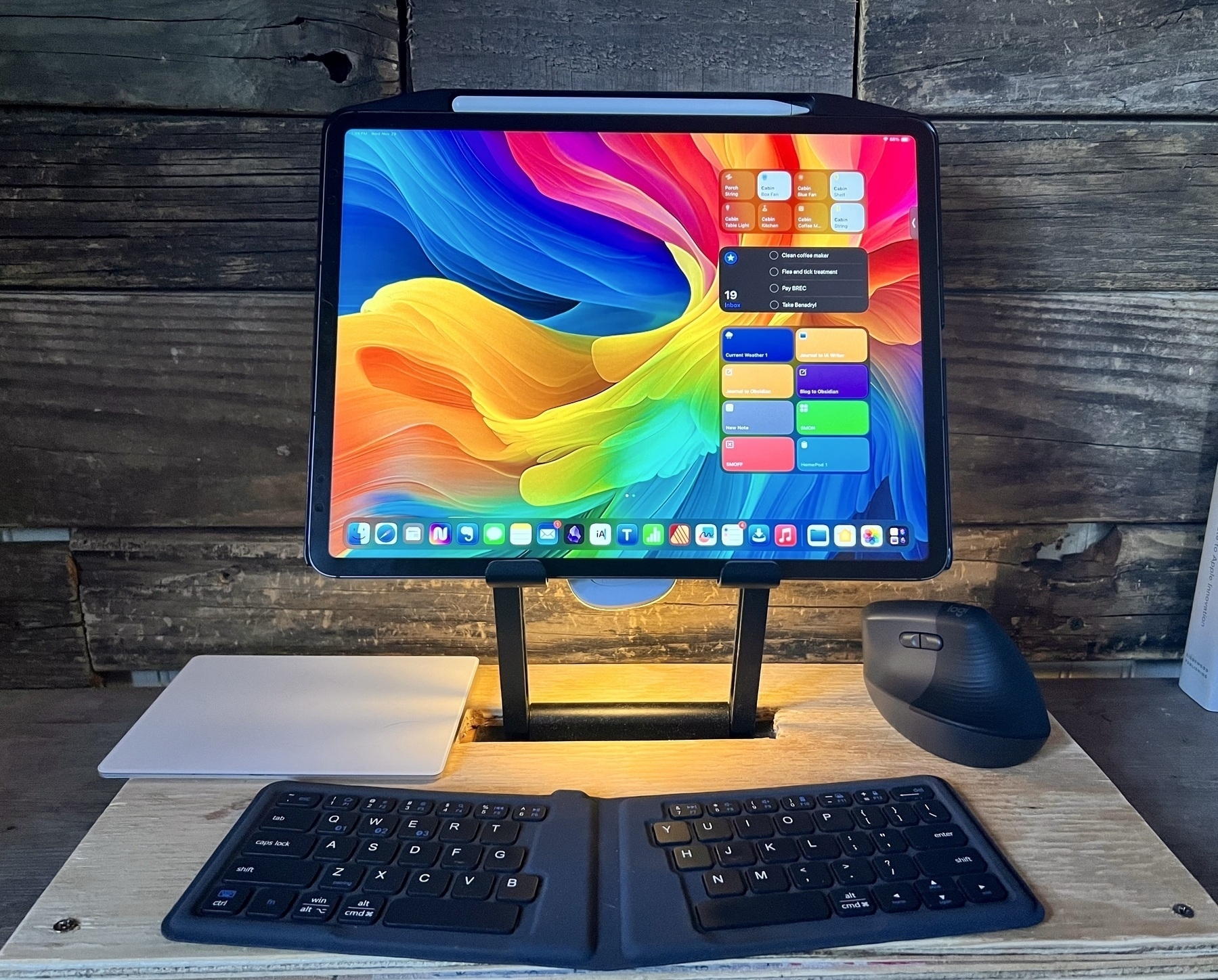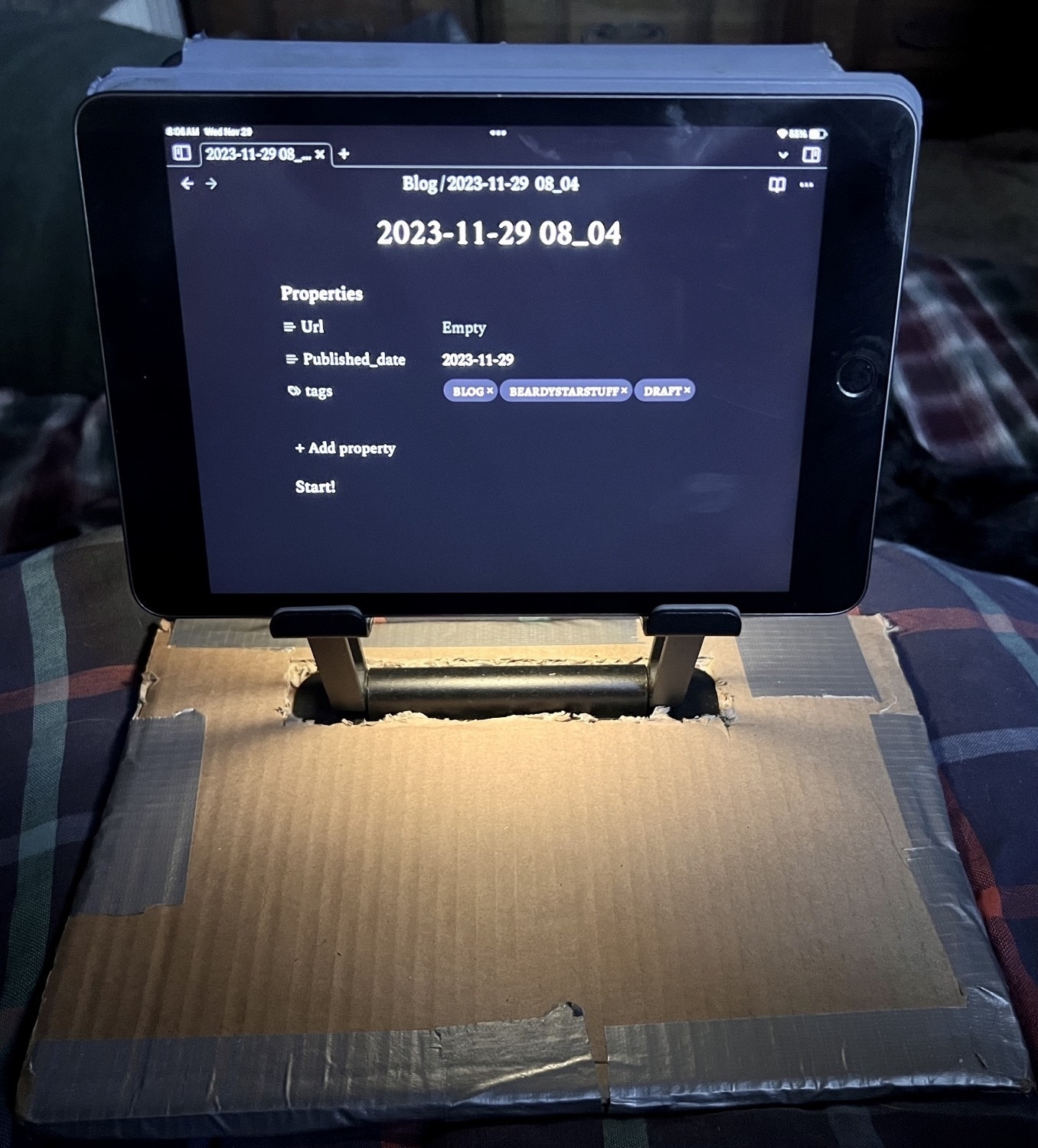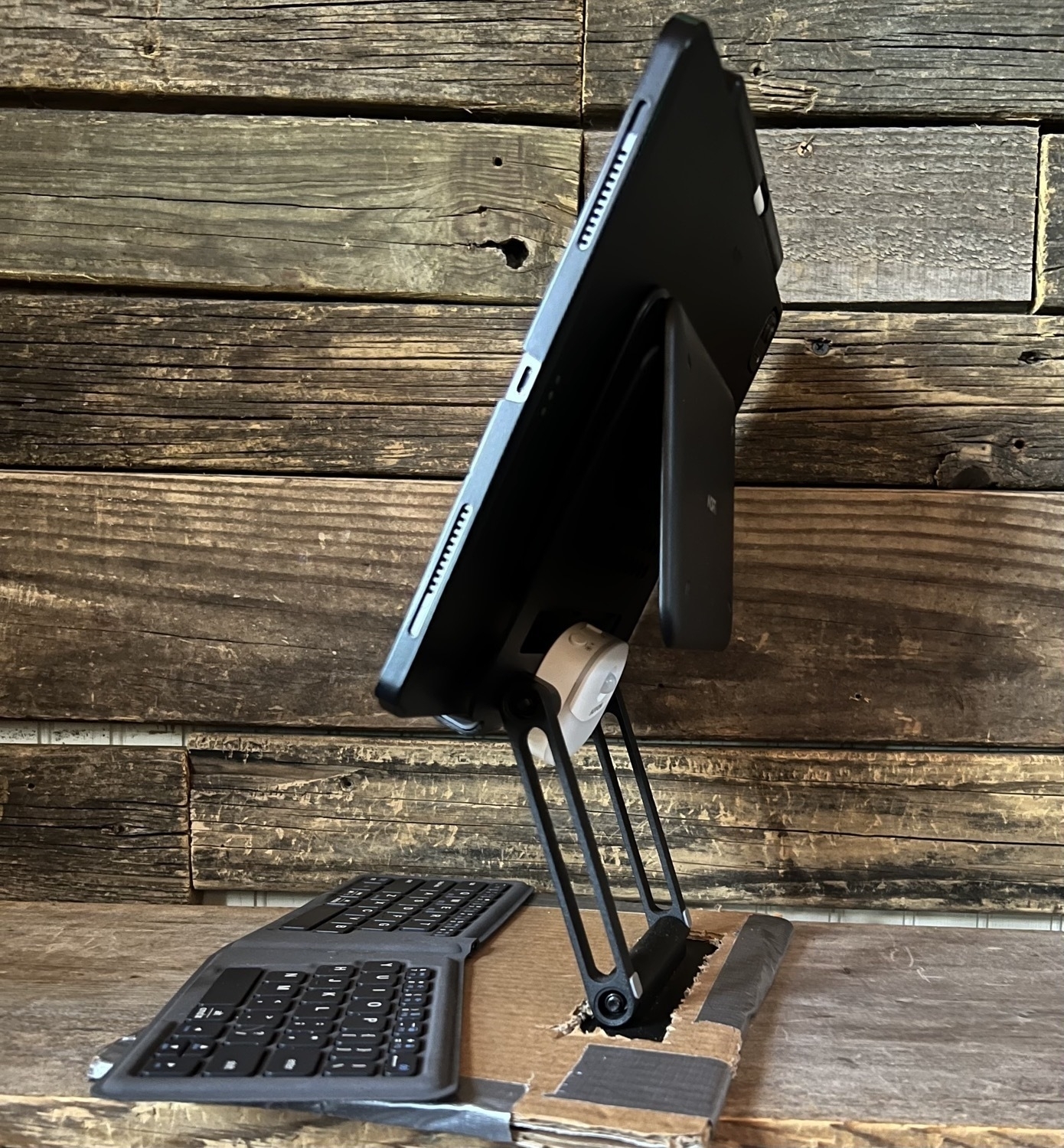Experiments with iPad Set-ups
My ongoing experimentation with iPad set-ups continues. A couple of months ago while browsing the web I happened upon a new-to-me concept, the cyberdeck. The idea is to build modular, hacked-together computers that are semi portable. I spent a few hours obsessing over images that presented something very close to what I've been wanting for my iPad set-up for quite awhile.
At its core a set-up that raises the iPad/screen to eye level, semi-portable, stable, and a place to store/use a swap-able keyboard.
I've been using this stand for a couple of months now. It's the second stand of this style that I've bought. The other one purchased a couple years ago is now being used to hold a portable 15" screen. This current stand is a bit heavier, especially the base, and even more stable. A couple of notes about the stand and then I'll get into the purpose for adding the cardboard base.
- The main point in using a stand like this is to raise the iPad fairly high, getting it much closer to eye level.
- With two hinges it is adjustable to any angle, far better than the limited angles available with iPad Magic Keyboard or other folio style keyboards.
- This stand is the older style of stand with a non-magnetic back and two support brackets on the bottom to hold the iPad. The newest magnetic stands look very clean and hold the iPad in place but only work with one size iPad based on the current model designs. They're also more expensive. These older style stands are sturdy and the cost is usually less than $25 compared to the magnetic stands that usually come in above $70.
- I like being able to place my current keyboard of choice on the base while typing.

Editing to note that since original post the hacky cardboard component has been replaced with plywood. Still a bit rough but okay for a prototype. 🤓 Images below depict the original cardboard version.
Now, why clutter it up with the addition of the ugly, hacky cardboard? In short, the cardboard is a cheap, easy way to experiment and improve the function of the stand. I often work from my futon with a pillow or two in my lap. I'm more likely to be working this way than I am to be at a desk. While this stand is very stable when sitting on a desk, the metal base is too small to be stable on a pillow which means using some sort of lap desk. In the past I've always used a plank of wood as my improvised lap desk and it works very well. I'll still do that when I need access to my trackpad or mouse. But most lap desks, be they the purchased variety with cushion attached to a thin board or my improvised wood planks are quite a bit heavier and more unwieldy to move. And though the stand is stable on the lap desk sitting in my lap, when I need to get-up I do have to be careful that the stand with the 13" iPad Pro doesn't tip over as I sit on the shelf next to my futon.

Thanks to the weight of the inserted metal base and the larger surface area of the cardboard, I now have something that is stable on cushy, soft surfaces like pillows. It won't ever tip over unless I intentionally flip it. I've got two pieces of heavy-duty cardboard taped together for a very rigid, sturdy base. I cut a slot in the top piece of cardboard to insert the metal base up to the hinge and between the two layers of cardboard. In addition to the stability it provides its larger size also means a better placement for the keyboard. The stand base is very snug in between the layers of cardboard. When I need to get up or move I can easily move the stand, iPad and keyboard by grabbing the cardboard or the metal arms of the stand. Unlike the stand sitting on a lap desk, this feels like I'm moving one, integrated piece similar to a laptop or the iPad attached to the Magic Keyboard.

The last bit that makes this work well is having a way to attach the iPad to the stand rather than just having it resting on the brackets. The stand is metal and when I'm using the iPad mini I just use Apple's folio cover folded behind the iPad. The magnets of the folio stick firmly to the stand so the iPad isn't going anywhere. With the larger iPad Pro I have the Moft float stand. It's attached magnetically to the Moft case and I just fold it down over the back of the metal stand. It's not going anywhere.
So, it's all a bit hacky but some free cardboard and duct tape make for a big improvement. I may well try a larger version next to accommodate use of a mouse or trackpad. For the moment it's easy enough to just use my wood plank lap desk when I need the extra pointer device.